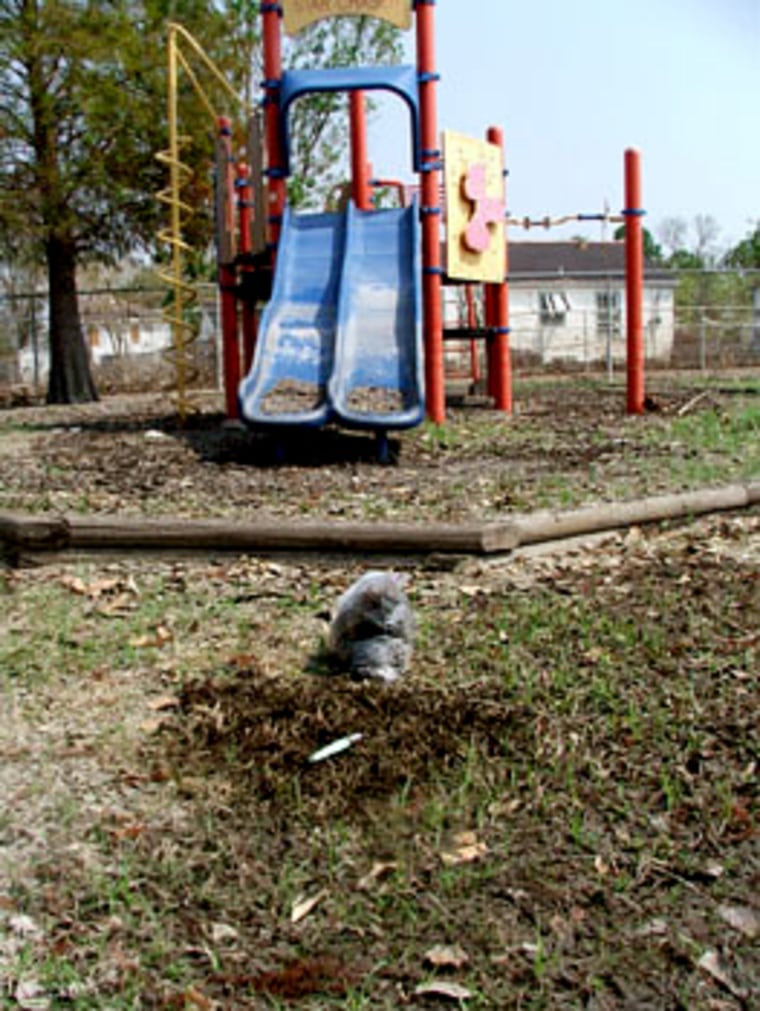Soil samples taken next to or near a major refinery spill in the New Orleans suburb of Chalmette have found high levels of arsenic, cadmium, chromium and various benzene compounds, two activist groups said Wednesday in releasing the test results.
The Louisiana Bucket Brigade and the St. Bernard Citizens for Environmental Quality urged government officials to take immediate steps to cleanup any soil contamination.
The areas tested in St. Bernard Parish included a church, a school and the neighborhood adjacent to the Murphy Oil refinery, which spilled 25,000 barrels of petroleum products when Hurricane Katrina hit. Some of the oil was contained by berms around the refinery, but much spilled over into the neighborhood, mixed in with floodwaters.
Heavy metals were found in the soil on the school’s playground, the groups said.
“Kids are always playing in the dirt and putting their hands in their mouths,” Anne Rolfes, director of the Louisiana Bucket Brigade, said in a statement announcing the results. “Why aren’t our government agencies talking about these risks?”
Murphy Oil sent a letter to residents earlier this week saying that testing by a company it had retained showed little threat of long-term health issues.
Murphy also distributed a letter from that company, the Center for Toxicology and Environmental Health, stating that “our specific tests of the homes in the affected area, with limited exceptions, showed that the homes we tested are already below RECAP standards even before there is any cleaning of homes and lots.”
RECAP stands for the Risk Evaluation/Corrective Action Program, which was developed by the Louisiana Department of Environmental Quality.
“Those that are not already below RECAP standards will certainly be in compliance once clean-up efforts are completed,” the consultant added. “Thus, we feel confident that based on the testing thus far, and the planned cleanup program, there should not be any long-term exposures to oil above RECAP standards and therefore the spill should not be expected to present any long term health and safety issues.”
EPA still testing
The Environmental Protection Agency, for its part, has taken initial air, water and soil samples around the New Orleans area, but stresses that those tests are meant only as snapshots to alert emergency responders to immediate dangers. Testing for any long-term health problems that could affect residents is still underway.
The activists, who said they have not been told of any sampling by the EPA, chose which spots to sample based on residents’ concerns, paying a certified testing company $20,000 to perform the work.
Earlier sampling by the Louisiana Environmental Action Network found similar concerns in Chalmette as well as New Orleans’ Lower Ninth Ward, a low-income area that saw severe flooding.
The new results are online at www.labucketbrigade.org.
